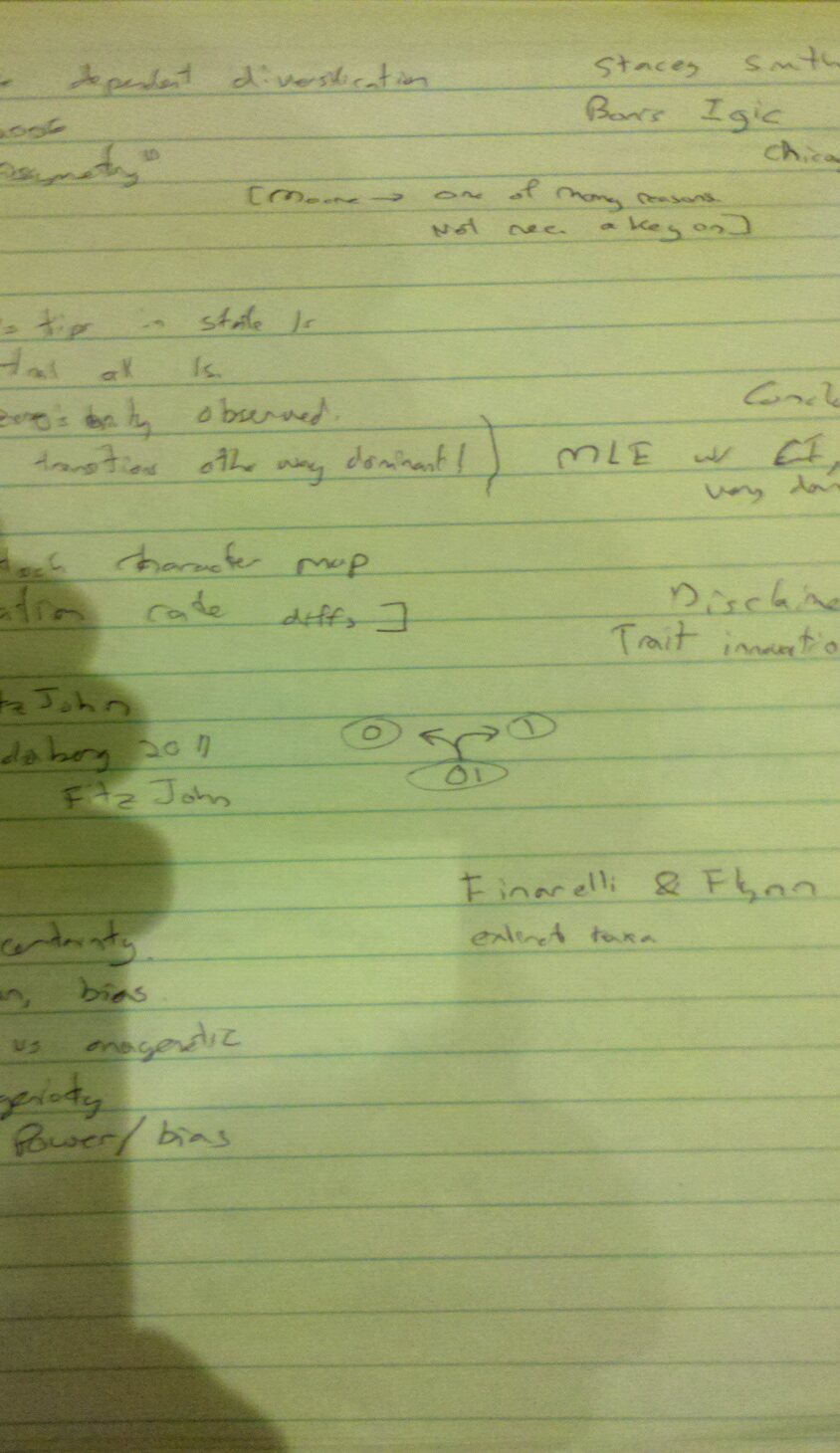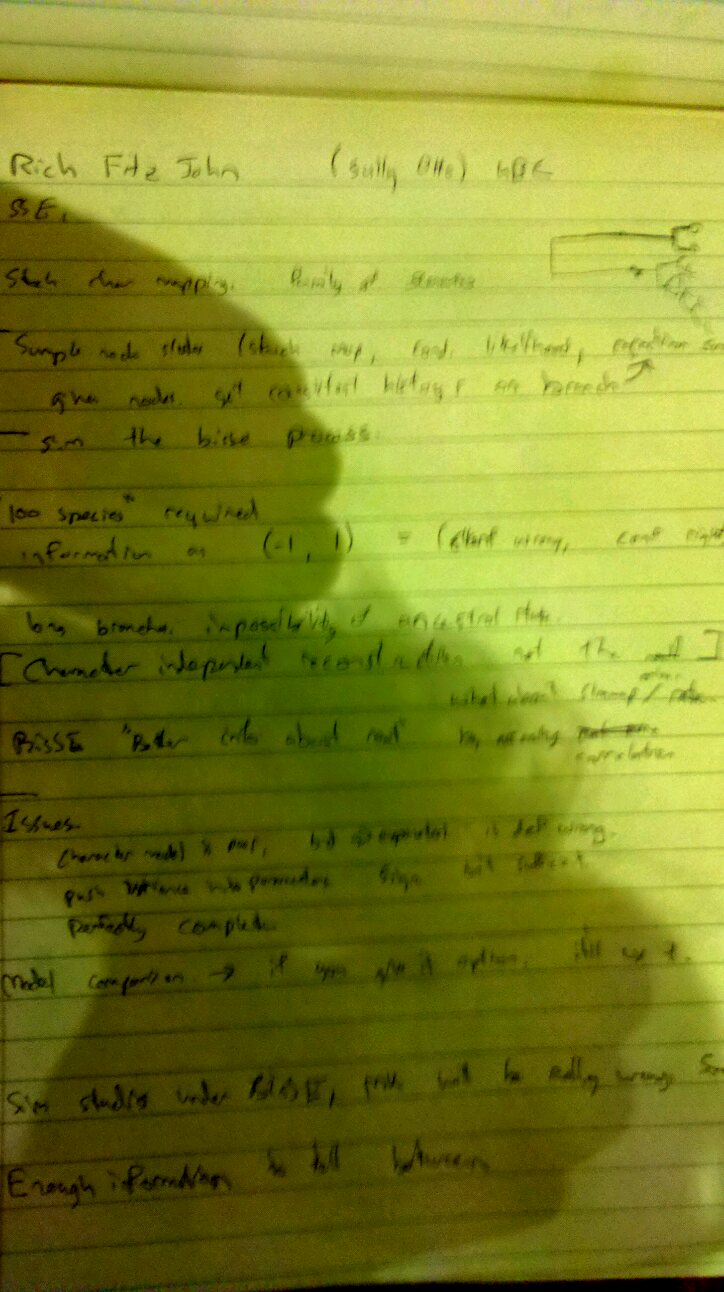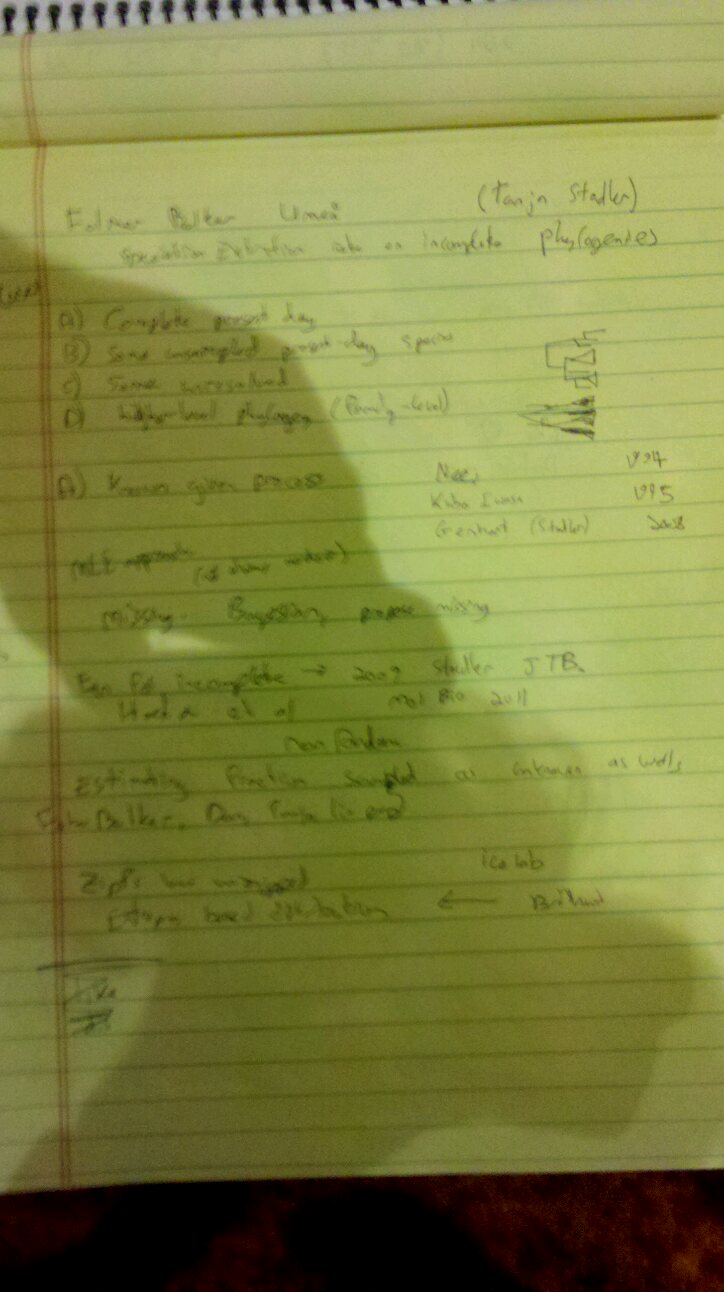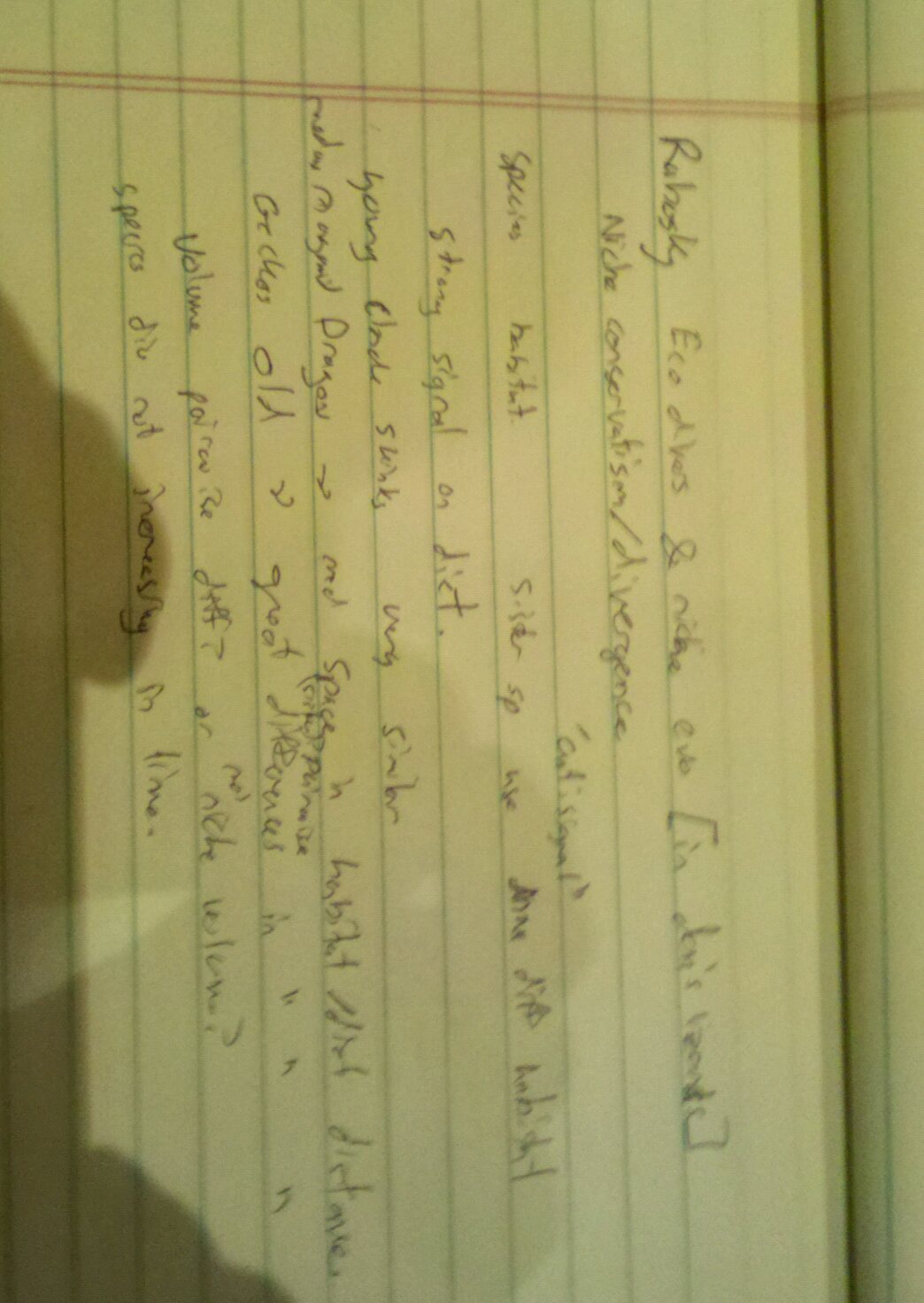Morning Sessions
SSB Symposium 8:30 - noon:
Unified Approaches for Understanding Patterns of Character Evolution and Diversification
- Stacey Smith (U. of Nebraska-Lincoln) and Boris Igic (U.of Illinois-Chicago) - “Introduction to models of character state-dependent diversification”
Introduces the BiSSE model.

- Richard Fitzjohn (U. of British Columbia) - “Stochastic mapping incorporating differential diversification”

BiSSE comparison to traditional discrete-trait transition rate which ignores the correlation.
- Folmer Bokma (Umeå University) - “Estimating speciation and extinction with incomplete phylogenies”

Emma Goldberg (University of Illinois-Chicago) - “Modes of speciation and character change from phylogenetic trees”
Peter Wagner (Smithsonian Institution) - “Using stratigraphic compatibility to reveal general relationships between character combinations and diversification”
P. David Polly (Indiana U.) - “Morphological clocks: why phenotype is a poor predictor of time since common ancestry”
Afternoon Talks (various sessions)
- Dan Rabosky – Ecological diversification and niche evolution in the world’s most species-rich lizard community.

- Cecile Ane: What power do comparative methods have to detect shifts in trait evolution and can we consistently estimate their parameters?
Excellent talk, shows: more data doesn’t improve estimate of ancestral states as \(1\sqrt n\), but does for estimates of \(\sigma\) in Brownian motion. Shows failure of AIC and chi-square approximation in model choice, and derives a correction for BIC.
Dean Adams: A phylogenetic evolution rate for shape and other multi-dimensional traits
Ben Redelings: Representing Rogue Taxa with Majority Consensus Tree
Missed this one (missed the schedule change!) but sounds promising. Instead saw another excellent talk:
- Carl Simpson: Reef coral diversification inferences from the molecular and fossil records
Illustrates how challenging these inferences are without a timeseries fossil record of the diversification. Decreases in overall species abundances are particularly challenging.
SSB Presidential Address
- Keith Crandall: The next generation of systematic biology
Apparently the phrase “Next Generation”, or at least Next-Gen, is officially synonymous with 454 (star trek watch out). 1 run gets you 1000 taxa x 12 loci 100X coverage with a 454 machine. Wow. But $8000 per run,
Picnic
Debrief day with colleagues,
met Scott Powell: cool ant diversification (soldiers with large heads to block nest holes mad in trees by beetles). Interesting trait-dependent diversification possibilities.
Mike Whitlock- Mostly discussion about data archiving, code archiving, and journal policies. Happy to say hi and congratulate him for his leadership in this.
Felsenstein- Priceless stories of the early days of phylogenetics that couldn’t be put in his textbook history.
My Tweet coverage, just for fun
Happy to get a chance to meet & thank Mike Whitlock for his leadership on data archiving and chat about future of code archiving #evol11
Hearing the fascinating and conflict-wrought history of early phylogenetic inference at #evol11 picnic from Joe Felsenstein
Crandall: good to study species that cabbies study (taxi driver pts him to this discovery:https://news.nationalgeographic.com/news…) #evol11 #yespeoplecare
1 run gets you 1000 taxa x 12 loci 100X coverage with a 454 machine. Wow. But $8000 per run, so don’t let the students get too fast #evol11
Crandall: Systematist’s dilemma: more genes or more taxa? Next-Gen is to do both with targeted sequencing#evol11 SSB pres address
RT @K_H_F_H: LOVE #evol11 I am in phy. methods I and it is so crowded there are rows of people sitting in the floor #phylogeneticsareawesome
Carl Simpson uses coral fossil record to test our ability to estimate species diversification rate - prob to have only + div rates! #evol11
RT @BoraZ: Lots of cool people tweeting from #evol11 - if they end up having a tweetup at the bar, I’ll be doubly jealous.
Dean Adams: for multidimensional traits (like shape) we can model diversification with average componentwise brownian rate. #evol11
Cecile Ane says - more data doesn’t always buy you more precision. p.s. this means AIC/BIC LR test gonna suck. #evol11
Rabosky shows “phlyogenetic anti-signal” in Aust. lizards - closely related species have greatest differebces in habitat #evol11
RT @lukejharmon: Everyone should present statistical results like Emma Goldberg #evol11
Emma Goldberg addresses when traits determining diversification change at speciation only - infer punctuated equib in PuncSSE #evol11
Folmer Bolker shows brilliant entropy-based fit to speciation compared to birth-death models #evol11 refs pub:https://iopscience.iop.org/1367-26…
Rich FitzJohn describes BiSSE, beautiful but “don’t try this with less than 100 species” #evol11
Looking forward to hearing about the latest methods in character evolution and diversification in SSB Sym in rm OK. E #evol11
RT @98prcnt_primate: Well if @JBYoder is switching to #evol11, I guess us mortals have not choice.
Check out the upcoming talks from Wainwright lab at #evol11 https://wainwrightlab.wordpress.com/2011…